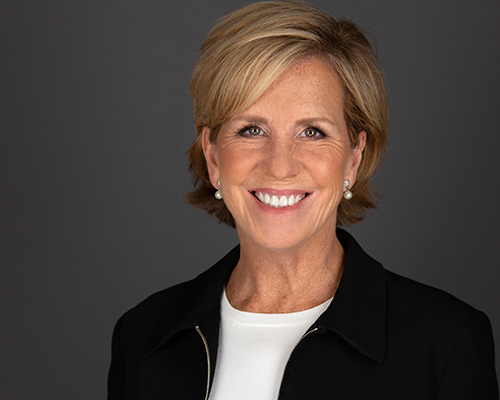Case Studies
A few examples of our successful client partnerships
Our Delta Point white papers are designed to inform, provoke thought, and increase decision-making abilities.
Establishing Global Coaching Program in Ultra-Rare Disease Marketplace
In 2017, a major biopharmaceutical organization made the decision to develop a global Coaching program to support all first line leaders. The goal was to have the program customized for both their corporate culture and the “ultra-rare marketplace.” To do this effectively, they wanted their internal stakeholders to be intimately involved in the development – built by the Company, for the Company. In addition to coaching, their global leadership team also identified the need for improved selling skills development for Regional Account Managers aligned to new global standards customized for each of the four global regions (US, EMEAC, JAPAC and LATAM)
The organization has a tenured and talented sales force. The nature of this market dictates that the RAMs have strong clinical and selling expertise in order to educate physicians and thought leaders on these rare diseases, as well as the unique treatment options. Because the new global Selling and Coaching approaches are intended to be customized to the company’s talent and still meet the unique needs by region, it was necessary to gain input from the field and leadership teams across the world in order to ensure the program provided value and ‘rang true’ for each market.
Developing Standardized Selling Approach
DPI had a long-standing relationship working with one of the divisions of a top five biopharmaceutical organization focused on selling skills development. The cross-functional Field Leadership Board decided to align a number of key field processes across all divisions for a ‘One Company’ approach. As part of this initiative, they sought to establish a singular selling approach with DPI as the partner selected to support this project. The goal was to capitalize on best practices from each of the four existing division specific selling models to develop a singular approach to: “Better enable customer-facing individuals to position brands in a customer’s mind in a way that aligns to their unique needs and patient challenges while driving business results.”
The Field Leadership Board wanted to establish a common selling language allowing for seamless adoption for all selling divisions, minimizing possible disruption to existing selling philosophies. Additionally, they sought to establish strong connectivity to the existing Coaching Model, providing clear articulation of what successful execution looks like, and how the rollout and enduring resources will serve to embed the new approach into the spine of the organization.
DPI conducted a comprehensive Discovery process including reviewing 75+ existing selling skills resources, conducting 12+ interviews with key stakeholders and established a project team with one training lead per division. From this Discovery, DPI developed an Insights and Recommendations report that included a new One Company selling approach graphic, definition of each selling pillar as well as the skills and behaviors that explained both the ‘What’ and ‘How’ to execute these skills effectively. DPI also put together a robust 18-month plan for launching, embedding and sustaining the new approach.
Each of the divisions launched the Customer Engagement Approach. The feedback on the model and support resources has been “beyond our expectations.” The sales organization felt the new model represented the customer-centric approach inherent in each division’s past model, with the big difference being the exquisite clarity for both the sales representative and the manager on how to execute these skills effectively.
Enabling Competitive Selling in Minimally Differentiated Market
An oncology sales team, that DPI has partnered with for over 5 years, was about to experience new competitive entries and asked DPI to develop training to elevate competitive selling skills.
The company wanted to prepare their teams to outperform the competition in this highly competitive and minimally differentiated market. To do so, they believed that in addition to clinical knowledge, the sales team needed to be superior in how they communicated, engaged, and had a lasting impact with customers. To outperform the competition without head-to-head product data, these practices needed to include changing the dialogue and creating noticeable differences in how the sales representatives show up with the customer.
DPI worked with Sales Training, Sales Leadership, and Marketing to develop a robust plan. This included internal communications such as a whiteboard animation and socialization deck that introduced the initiative, plan, and expectations. DPI reinforced the important role of the leaders as the linchpin to competitive selling success. Even before rolling out training to the sales representatives, DPI elevated the skills of the leadership team at live meetings (two within six months) using case studies, role-play of coaching conversations, and virtual coaching corners on key topics. The initiative was introduced to the sales representatives during a national sales meeting keynote by DPI CEO Jerry Acuff. The field sales team was provided on-demand micro-learning opportunities through modules and podcasts on influence and persuasion, virtual workshops, and knowledge checks. The leaders, first- and second-line managers, were provided tools to support their ownership of competitive selling excellence at the regional and district level, such as coaching guides and discussions forums. DPI followed up the training with DPI-led and leadership-sponsored Ask the Expert session as well as brand-specific example sales language to demonstrate ‘what great looks like’.
This initiative was a 1+ year commitment as the coaches became the experts and competitive excellence was embedded within the company culture. As the sales team’s confidence, commitment, and communication skills continued to elevate over time, they were able to more effectively engage their customer. The oncology team was able to successfully maintain or grow their share of the market even in the face of competitive entries.


 Connect with Kristen Trezza
Connect with Kristen Trezza Connect with Robin Napier
Connect with Robin Napier  Connect with Randi Yogel
Connect with Randi Yogel  Connect with Kim Underwood
Connect with Kim Underwood Connect with Tony Mauro
Connect with Tony Mauro Connect with Jean Marie Tenlen
Connect with Jean Marie Tenlen
 Connect with Michael Fabiano
Connect with Michael Fabiano Connect with Linda Iarussi
Connect with Linda Iarussi Connect with Kendell Kole
Connect with Kendell Kole Connect with Joe Zucchero
Connect with Joe Zucchero Connect with Mark Cohen
Connect with Mark Cohen Connect with Fran Robison
Connect with Fran Robison Connect with Desiree Young
Connect with Desiree Young Connect with Matt Murphy
Connect with Matt Murphy Connect with Jerry Acuff
Connect with Jerry Acuff